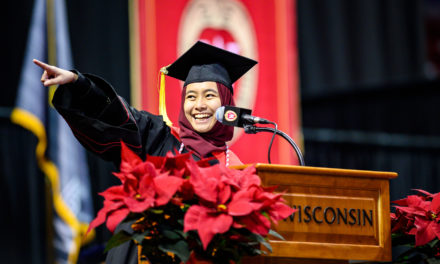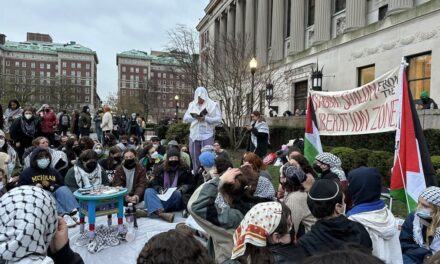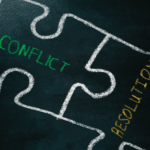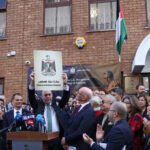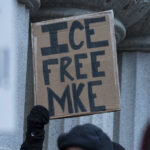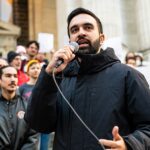US President Donald Trump has been accused of stoking Islamophobia after raising questions about social distancing in mosques during the holy month of Ramadan.
Trump said on Saturday there “could be a difference” in how authorities and politicians enforce coronavirus lockdown measures during the upcoming Ramadan compared with how Christians were treated during the Easter holiday.
The president made the comments when asked about a tweet by conservative writer Paul Sperry, which Trump had retweeted, that suggested Muslims could get preferential treatment.
“Let’s see if authorities enforce the social-distancing orders for mosques during Ramadan (April 23-May 23) like they did churches during Easter,” Sperry wrote, echoing a theme that has circulated in right-wing circles on Twitter.
“I would say that there could be a difference,” Trump said during his daily coronavirus news conference. “And we’ll have to see what will happen. Because I’ve seen a great disparity in this country,” he said echoing far-right sentiments on Twitter.
When Al Jazeera’s Kimberly Halkett questioned Trump on whether he specifically thought that Muslim religious leaders in the US would not follow social distancing guidelines during the holy month, Trump responded: “No I don’t think that at all.”
“I just had a call with imams, ministers, rabbis. We had a tremendous call with the faith leaders,” Trump said.
“I am somebody who believes in faith, it doesn’t matter what your faith is, but our politicians seem to treat different faiths very differently.
“I don’t know what happened with our country, but the Christian faith is treated much differently than it was, and I think it’s treated very unfairly,” he said.
Trump has been criticised for his handling of the coronavirus pandemic that has killed nearly 40,000 people while infecting more than 700,000 people in the US. More than 160,000 people have died worldwide due to the virus which originated in China last year.
The pandemic has overturned traditional religious gatherings and prayers since widespread lockdowns and restrictions were implemented in states throughout the country beginning in March.
The outbreak prevented Christians across the country from gathering on Easter Sunday on April 12, although some leaders bucked those restrictions. Jewish Americans were likewise forced to turn traditional Passover seders into virtual affairs when the eight-day holiday began at sundown on April 8.
The Islamic Society of North America, along with Muslim medical experts, has urged the suspension of group prayers, among other gatherings in light of the pandemic.
In a tweet on Saturday, the Council on American-Islamic relations called Trump’s comments “incoherent”, with the hashtag “islamophobia”. Meanwhile, the Muslim Advocates organisation said Trump was broadcasting “anti-Muslim hate”.
In his response on Saturday, Trump added that he has seen a “very strong anti-Israel bent in Congress” which he said was particularly perpetuated by congresswomen Ilhan Omar and Alexandria Ocasio Cortez, among others.
“So I would be interested to see that. Because they go after Christian churches but they don’t seem to go after mosques, and I don’t want them to go after mosques. But I do want to see what their bent is,” Trump said.
Ramadan begins at sunset on Thursday.
The president has been accused of anti-Muslim rhetoric in the past. One of his first acts upon entering office was to ban travellers from several Muslim-majority countries.
Despite widespread adherence to social distancing guidelines across the religious communities throughout the country, there have been some high-profile defiances among religious leaders.
A Virginia pastor who continued to preach in defiance of stay-at-home rules died last week after contracting the coronavirus. Meanwhile, pastors at two megachurches in Florida and Louisiana have been arrested on misdemeanour charges for flouting stay-at-home orders.
The US Department of Justice has also defended parishioners in Mississippi who attended a church service in their cars with the windows up, saying they were exercising their freedom of religion, Al Jazeera’s Halkett reported from Washington, DC.
“Now many in the United States are watching very carefully to see if this same effort will be applied when it comes to those who may want to celebrate during Ramadan,” she said.

